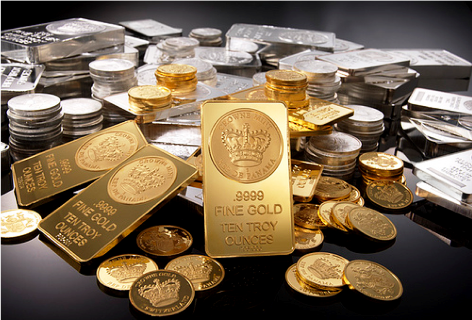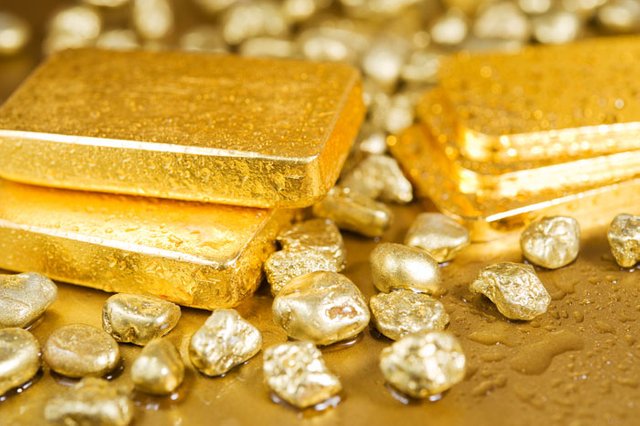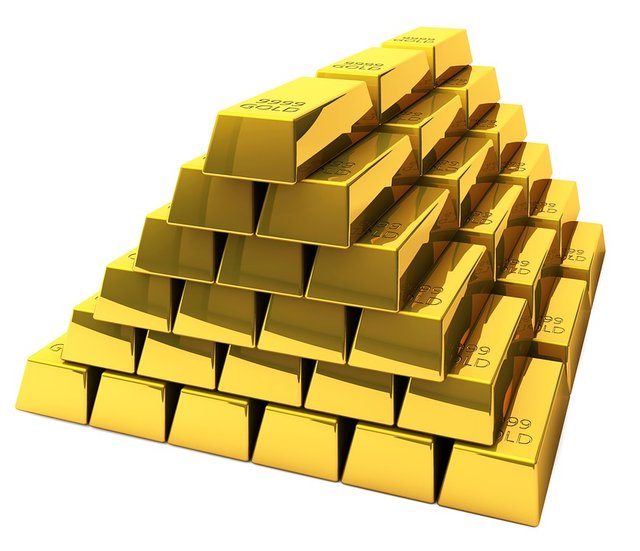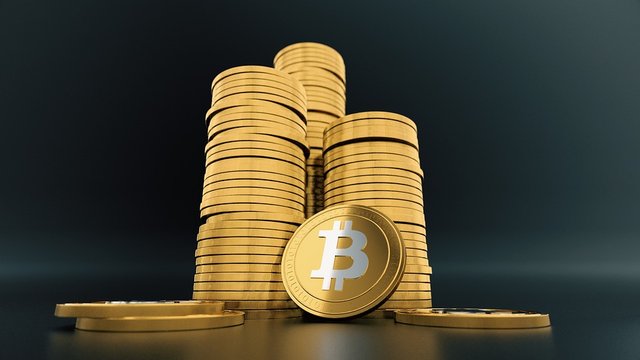What is Gold Bullion? (The Investors Guide)
What is Bullion

Bullion is gold and silver that is officially recognized as being at least 99.5% pure and is in the form of bars or ingots.
To create bullion, gold first must be discovered by mining companies and removed from the earth in the form of gold ore, a combination of gold and mineralized rock. The gold is then extracted from the ore with the use of chemicals or extreme heat. The resulting pure bullion is also called "parted bullion." Bullion that contains more than one type of metal is called ''unparted bullion''

BREAKING DOWN Bullion

Bullion is Legal tender that is held in reserves by Central banks or used by Institutional investors to hedge against inflationary effects on their portfolios. Approximately 20% of mined gold is held by central banks worldwide. This gold is held as bullions in reserves which the bank uses to settle international debt or stimulate the economy through gold lending. The central bank lends gold from their bullion reserves to bullion banks at a rate of approximately 1% to help it raise money.
Bullion banks are involved in one activity or another in the precious metals markets. Some of these activities include clearing,risk management,hedging trading, vaulting, acting as intermediaries between lenders and borrowers, etc. Nearly all bullion banks are members of the London Bullion Market Association (LBMA), an over-the-counter (OTC) market which offers little to no transparency in its dealings. LBMA members include banks such as TD Bank, Bank of Nova Scotia (BNS), UBS, Citibank, JP Morgan, Morgan Stanley, Royal Bank of Canada (RBC), Merrill Lynch, Goldman Sachs, Bank of Montreal (BMO), BNP Paribas, HSBC, Standard Chartered Bank, etc.

When the central bank lends gold to bullion banks for a specified period, say three months, it receives the cash equivalent of the gold lent to the bullion bank. The central bank lends this money on the market at a lease rate known as the Gold Forward Offered Rates (GOFO) which is published daily by the LBMA. The higher the lease rate, the more incentive a central bank has to lend gold from its reserves. The bullion banks who borrow the gold can sell the gold or lend it to mining companies.
If the bullion bank sells the gold on the spot market , it will receive cash for the transaction. An increase in the supply of gold in the market reduces its price. The bullion bank hopes that by the time it’s scheduled to repurchase the gold from the spot market, its price will still be suppressed, or at least the same as what it sold the bullion for. At the end of the loan period, the bank buys back the gold and returns it to the central bank. Bullion banks that lend gold to mining companies would usually do so to finance a project being run by the company. A mining firms would also borrow gold if it entered into a forward hedge contract in which gold, that has not yet been mined or extracted from the earth, is pre-sold to buyers. If some or all of its buyers expect a physical delivery of the gold bullion, the mining firm would opt to borrow the gold from the bank, which would subsequently be delivered to the buyers on the other end of the forward agreement. The gold lent to mining companies is usually repaid from the companies’ future mining output.

Purchasing and Investing in Bullion
An investor who wants to purchase precious metals can purchase it in physical bullion form or paper form. Gold or silver bars or coins can be purchased from a reputable dealer and kept in a safe deposit box at home, in a bank, or with a third-party depository. Also, you can purchase bullion in an allocated account at a bank which holds the bullion for the client. The client has full legal ownership of the gold. If the bank faces bankruptcy, its creditors have no claim to the bullion in the allocated account since it belongs to the client or owner, and not to the bank.
Conclusion:
Bullion is traded in the bullion market , which is primarily an OTC market open 24 hours a day. Trade volume in the bullion market is high, and most transactions are completed electronically or by phone. The price of gold bullion is influenced by demand from companies that use gold to make jewelry and other products, and by perceptions of the overall economy, for example, gold becomes more popular as an investment during times of economic instability.
You might be interested: The man behind two gold ETFs says this about bitcoin
Thanks for reading!
@goldeninvestor
My goal is to provide as much valuable information we could.
As a New Steemit community member I'm appreciate all upvotes . BIG thank you for help me to Grow!

Great reading, amazing pics!
Wish I was sitting on piles of bullion! Thanks for the info and you have a new follower ;) Welcome to Steemit! (Make sure to use all your tags btw grow faster...)
Thank you for the advise and for a warm welcoming!
I will use it wisely ;)